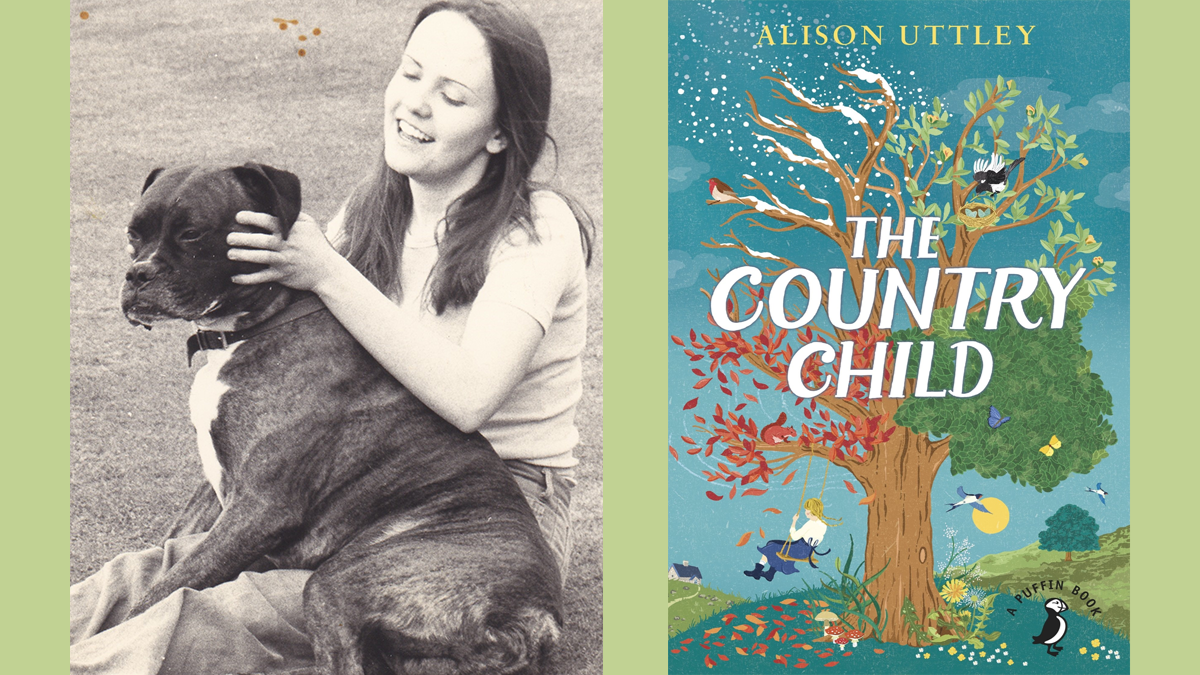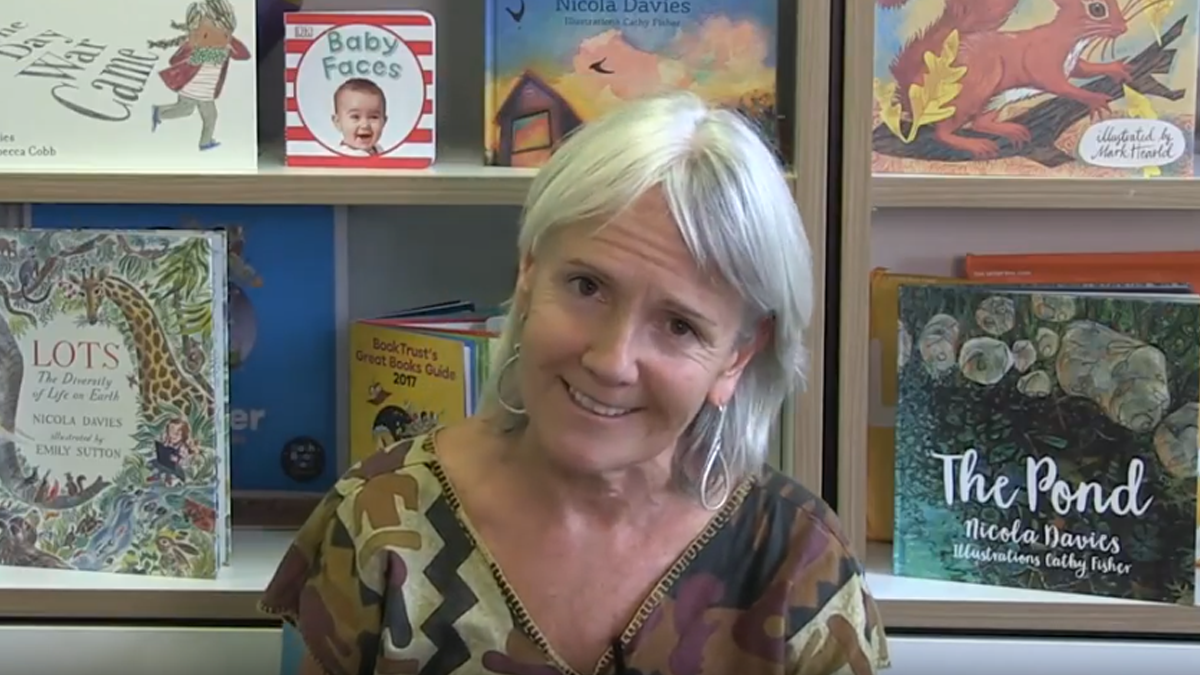The Book That Made Me: Nicola Davies
Published on: 14 Mai 2019 Author: Nicola Davies
What's the childhood book that made you who you are today?
As a child, author Nicola Davies was always looking for a character who was just like her. Finally, between the pages of The Country Child by Alison Uttley, she found Susan – a girl who loved nature – and she instantly felt less alone.

Author Nicola Davies as a teenager with the book she fell in love with: The Country Child by Alison Uttley
There were books I loved like friends (Gerald Durrell’s The Bafut Beagles); there were scenes I put myself into (Eowyn and the Nazgul in The Lord Of the Rings); and places in books I visited time and again (the illustrations of human anatomy at the back of the Encyclopedia Britannica).
But there was only one book in all my childhood where I found a child like me: Susan Garland in Alison Uttley’s semi-autobiographical book, The Country Child.
Lost in thought and imagination
Susan was solitary, a lone child in a household of preoccupied adults, living within her thoughts and imaginings, intensely aware of the natural world around her.
She wasn’t a heroine to model myself on, but how well I understood her! I too lived in a deeply private world of eccentric passions, with my own belief system, my own lone traditions, like a one-person tribe. When Susan buried her one doll, Rose, for fear of idolatry, and then dug her up at dead of night to hold her defiantly to her bosom, I recognised my own obsessive nature, my own desire to be "better". When she ran through the fields exalting or crept fearfully through the shadows, I was right beside her, inside her head, my consciousness right next to hers.
I shared Susan’s position as the only child in the house, but I didn’t share her world. My world was a manicured garden and Suffolk fields. I envied her the Derbyshire hill farm where she lived, at a time when horses still worked the land, and milking was done by hand. I longed for Susan’s close, daily contact with animals, and for her bedroom high above a sheer drop of rock.
Introduction to sustainability
Windystone Farm, Susan’s home, grew to be a magical place for me. The wonderful black-and white-illustrations by Tunnicliffe (whose bird illustrations I later came to know and admire) portrayed small details, like the milk pails cooling in the water trough that had the significance of religious icons in my heart. I still sometimes dream about the deep stone troughs, filled with natural spring water: a dream filled with longing. I think if I ever found a house that had the real thing, I would have to buy it, even if the rest of the place was falling down.
 Nicola Davies today, surrounded by books she has written: many about nature, animals and conservation
Nicola Davies today, surrounded by books she has written: many about nature, animals and conservation
The seasonal rhythms, with their cycle of necessary activities on the farm, made a great impression on me. They echoed what I already felt, that nature was so deeply a part of human life that only through direct involvement with it could human lives have meaning.
I loved the simplicity and the frugal economy of life at Windystone; in a place and a time where everything you eat or use, or wear, is made my your hands or the hands of those around you, waste is unthinkable and nothing unnecessary is ever brought into being.
The Garland’s farm gave me my first glimpse of what we now call sustainability.
Joyfully strange and herself
I started reading The Country Child when I was 11, just before I started secondary school, and read it again and again over the subsequent years. I never talked about the book to anyone, never had it read aloud to me, or read it to anyone. What it meant to me, how much I identified with Susan and wished to be in her world, I kept completely private.
Sometimes I would pretend to be Susan. I had an old dress that my mother had made me, but I had really grown too tall for, and when I wanted to connect with Susan, I wore it. It was a quite deliberate attempt on my part to remain a child and to hold on to my "Susan thoughts" about trees, and foxes and to shut out the anxiety of being on the cusp of adolescence and disliked at school.
Finding Susan didn’t make me feel less lonely or less of a misfit, but it made me, in some small, significant way, see that being solitary and eccentric was something I could relish. I ran around the garden shouting, with my stick (I always had a stick), hid away in the trees and bushes just watching and thinking, and because of Susan Garland, I could sometimes feel joyful about that.
That contentment in being alone and a bit strange has proved a great preadaptation to the life of a writer. Uttley’s attention to small details in the textures and ripples in nature, and their echoing significance in Susan’s interior world, has definitely helped to make me the sort of writer I am.
I’m always looking for those details and finding their echoes in myself and in others: the echoes of nature that give our lives shape, structure and meaning.
Check out our nature non-fiction booklist for older children
Nicola Davies
Topics: Animals, Nature, Features, The Book That Made Me






Add a comment